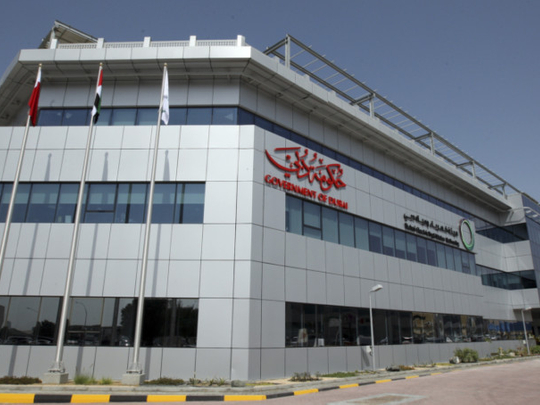
A turnaround in real estate market and demands for energy-efficient buildings and smart solutions are among the factors behind the growing facilities management (FM) industry in the GCC.Data provided by the Middle East Facility Management Association (MEFMA) shows about $21.8 billion (about Dh80 billion) being spent on FM in the region in 2012, with the UAE, Qatar and Saudi Arabia leading sector growth. The data was obtained through interviews with 35 top regional companies to identify current FM trends in the GCC.
“Policymakers and corporate players worldwide are quickly realising the importance of efficient infrastructure and building management,” says Jaafar Shubber, Senior Project Manager at the trade show FM Expo 2014, which takes place from tomorrow until Wednesday at the Dubai World Trade Centre. “Over the past decade, FM has developed faster than any other discipline in the construction sector, providing tremendous opportunity for adding value to property assets.”
For the first time this year, the eight-year-old show will host two niche industry events, Middle East Waste & Recycling and Commercial Cleaning & Hygiene. Both provide complementary platforms to FM EXPO, bringing together products and services that are intricately linked. Exhibitors at the events come from traditional and new sectors, with participation from the USA, Mexico, Saudi Arabia, Germany, UK, Spain, Portugal, Turkey, Kuwait, Qatar, India, Australia and Canada.
The UAE and Saudi Arabia are strong FM markets due to the increasing GDP contribution of construction and real estate. “In addition, Qatar, Kuwait and Egypt, especially Cairo, Libya and many other Mena countries have fast-paced growth, which presents opportunities for FM,” Shubber says.
Here Shubber lists five industry trends for visitors to look out for:
1. Energy efficiency
About 70 per cent of the UAE’s annual energy consumption is attributed to built environment, placing building management as priority for energy reasons alone. This strengthens the role of FM in construction. “Demand for energy continues to rise in the UAE and across the region, and ensuring that buildings are more energy-efficient is a requirement for not only new builds but for existing buildings too,” says Shubber. “Smart FM strategies can help support this.”
Recently, Emrill launched a building and asset optimisation energy-driven FM model, which, reportedly increases the life of buildings while reducing energy consumption and service charges. It combines maintenance and energy optimisation to integrate the requirements for enhancing a building’s performance.
2. Making sense of data
Big data and rapidly evolving technology is also affecting the industry, as professionals can understand more about how a building functions, the outputs and the way in which FM can contribute to an efficient building. One example of a smart system is Inaya Facilities Management’s new mobile solution at Ibn Battuta Mall. Ground staff equipped with touch computers simply scan barcodes on installed equipment to access the service record and current stock levels as well as to place an order for immediate delivery of a new part. The new process is efficient, accountable and logs quantifiable performance data.
3. FM in building design
FM is now being incorporated at the design stage, allowing owners and architects to construct buildings that can be efficiently maintained over the long term.
“As a collaborative effort involving all stakeholders at the outset of a project, the regional industry is in the throes of integrated design, with the focus resting on better, less expensive buildings,” he says. “In this age of complex multi-tiered projects guided by the principles of green design, the industry needs a less linear approach for efficiency.”
4. Market growth
Regional estimates say FM could contribute to more than 80 per cent of the property and project value over a building’s predicted 25-year life cycle — an opportunity for FM companies in terms of either new build or retrofitting old buildings, Shubber says.
5. Enter the professionals
With the industry becoming more sophisticated and performance requirements more demanding, there is an emerging cadre of qualified FM professionals — necessary to cater to the demands of the market, Shubber says.
MEFMA recently announced a plan to introduce a Star Rating System to benchmark buildings and facilities and encourage best practices for integrated FM across Mena.












